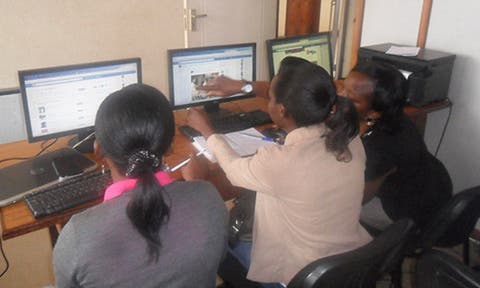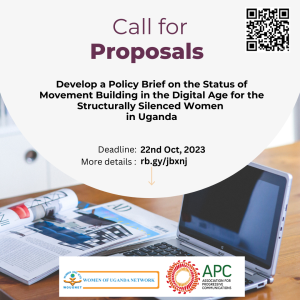When it comes to entrepreneurship, Uganda is getting more and more known for its innovative projects[1]. Through their bold initiatives, women are among the key actors contributing to the enhancement of the country’s entrepreneurial sector. Given such dynamics, Ugandan women’s voices in business and entrepreneurship should be given greater attention.
Indeed, there are still factors remaining that influence women’s capacity to become effective entrepreneurs. For instance, a growing number of research argues that these factors vary between levels of education, lack of finance, size of household, land availability and gender inequality among many others[2]. These barriers are simultaneously related to socio-cultural, economic, familial and political dimensions. Undeniably, these obstacles should not be avoided because they restrain women in a position that hinders their ability to push their entrepreneurial ventures to higher levels that could serve as developmental tools and resources.
Therefore, greater attention should be given to women and their entrepreneurial initiatives not only to counter these barriers but also to account for the increasing amount of space women are occupying in this field in both formal and informal sectors. In Uganda, the average profile of an entrepreneur is a female aged from 18-34 years old[3]. Informal enterprises account for almost 50% of employment where almost half of these businesses are owned by women[4]. Moreover, Uganda experiences an increase in the number of enterprises moving from the micro level – less than five workers – to small businesses – more than five employees – where the majority of these ventures are also owned by women[5]. Since 2003, there has been a steady increase of female participation in entrepreneurship whereby the current ratio is now 1: 0.92[6].
This profile of Uganda’s business sectors suggests that women are key actors in entrepreneurship. Ugandan women could potentially become even greater income generators not only for the sustainability of their personal household but for the entire country’s economic and human development. Therefore, creating even more space for women to become efficient entrepreneurs, especially in the agricultural sector where majority of the labour force is located, can be beneficial for the country in general[7]. By including more women in entrepreneurship discourses, Uganda could benefit from a much bigger and efficient employment sector since women already account for approximately 50% of the country’s labour force[8].
Since the 2000s, efforts has been made in Uganda to generate greater advancements and initiatives for women in entrepreneurship[9]. Nevertheless, giving female entrepreneurs more voices and space in business markets should not be done without addressing issues of sustainability and gender-sensitive policies. For example, there are significant disparities remaining between men and women in terms of employment opportunities and access to resources[10]. Bridging these gaps through means that include adopting sustainable gender-sensitive policies could alleviate these challenges while acknowledging the contribution of women in business and pushing their voices further in entrepreneurial narratives[11].
Article by,
La Rissa Ituze, Intern WOUGNET
McGill University, Canada






